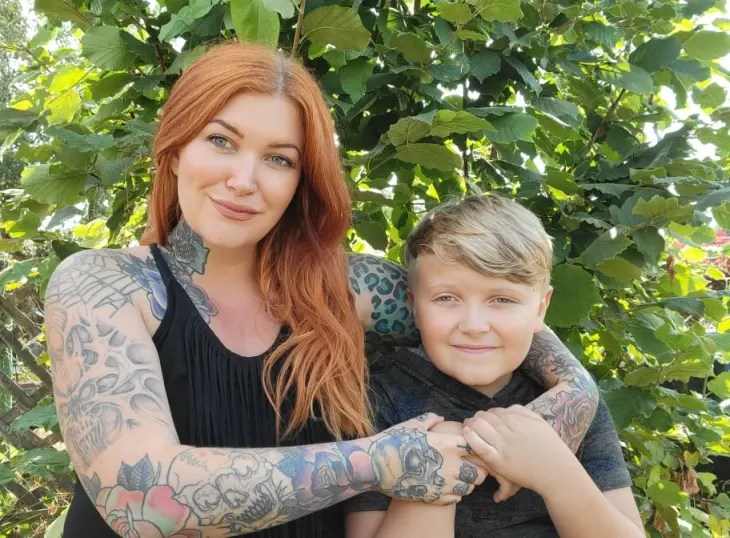The Disability Benefit Act, also known as Bill C-22, has now received royal assent.

The legislation is designed to offer federal income support for low-income, working-age people with disabilities, but won’t come into force for about a year.
And the amount recipients will get through the benefit still isn’t clear.
Eileen Davidson is a 37-year-old single mom and disability advocate from Burnaby, B.C., who struggles with rheumatoid arthritis. She explained how she hopes she will receive enough money to meet her needs every month because of the benefit.
“All I would like to see is, like, a steady, livable amount per month put into my account so that I don’t have to worry about food on my table, bills paid and my rent paid,” Davidson said.
She said she holds cautious optimism about the new legislation.
“They’ve announced that it’s finally been passed and I’m like, ‘What the hell took you so long? Why are we left on the backburner?'” Davidson said.
“I’m happy that they’ve passed the bill and that we may be getting more, (but) I am worried that it’s going to be a slap in the face (and just be a) small amount. I’m also worried that it’s not going to reflect the true cost of living in today’s society. And I’m worried that they will never reframe the clawbacks.”
The Disability Benefit Act was tabled last year by the federal government.
A charity called Disability Without Poverty launched an open letter to Parliament that included signatures from over 200 prominent Canadians, an open letter that had 43 senator signatures and a parliamentary e-petition signed by over 17,000 Canadians. It was sponsored by Green Party MP Mike Morrice.
Bill C-22 received royal assent on June 22, 2023, but the legislation includes wording that it won’t come into force for another year.
Still, the legislation is providing hope for improved financial stability for people with disabilities living in poverty.
“It’s been a long journey,” said Rabia Khedr, the national director of Disability Without Poverty (DWP). “We are pleased that our parliamentarians worked hard to get us to this point.
“People with disabilities now have a glimmer of hope for a better future. A little more money will help them buy food, over-the-counter medication and maybe even a haircut.”
Davidson explained that even with extra money coming in, it will take a while for her to get used to it as she is always thinking of pop-up costs.
“It’s like you want to go out and spend money on something, but then you’re like, ‘Well, what if I need to go and buy that medication … again, or If I get sick and I can’t work? Or what if my cat gets sick and I need a vet?’”
Kristin Bell-Murray is a 41-year-old Canadian with a disability living in Sudbury, Ont. They have experienced poverty due to their disabilities: Ehlers-Danlos syndrome (EDS), multiple sclerosis (MS), postural orthostatic tachycardia syndrome (POTS) and more.
“I exist in credit card debt. I live hand to mouth,” Bell-Murray said. “I run out of money at the end of every month and I try to be very careful. I don’t have a budget for clothing or entertainment.”
Bell-Murray said they don’t know what amount of support from this legislation would affect their quality of life because the concept of having enough money seems so out of reach.
“It’s hard because I’ve never had money. I don’t really know what it’s like to have your needs met that way.”
Bell-Murray added they are cautiously optimistic about this legislation because they have had to fight for so many supports and have been rejected from many others.
“It sounds hopeful, but (like) so many things over the years, I’ve had to, like, fight for (things),” said Bell-Murray. “I’m concerned that it’s not going to go anywhere for a long time and that when anything does happen, they’re not going to listen to people enough to provide them with enough support.”
They worry it won’t solve the issue and it won’t have barrier-free access like promised.
“I’ll believe it when I see it,” said Bell-Murray.
“(It) gives me cautious hope.”
Bell-Murray hopes that this benefit can make it so Canadians with disabilities like themselves can get access to their basic needs.
“I would hope that it would enable me to have better access to my community somehow,” said Bell-Murray. “I’d be able to care for my basic needs better. Maybe I could afford gas to go visit my nurse practitioner more frequently.”
Bell-Murray said they just want to have access to the same things everyone else does.
“It’d be really nice to just have what everybody else is taking for granted,” they said. “Disabled people just need basic access to basic quality of life.”
Bell-Murray added that they hope this benefit can bring people far enough out of poverty that they have a good enough quality of life to not feel the need to apply for something like medical assistance in dying (MAID).
“I hope something can change to catch people, like I was years ago, before they passed the point of no return in some kind of a way — either seeking out MAID or just completely losing their quality of life to the point where they become so detached from the world,” said Bell-Murray.
“I’m not suicidal. But I’ve gotten to the point where I’d rather choose my way out than die in a cardboard box on the street.”
Davidson agreed that there is much to be done in the way of equality but hopes this bill is a good first step.
“Just even being able to just work a tiny little bit and not worry about losing my disability would be actually really lifechanging for me.”










Comments